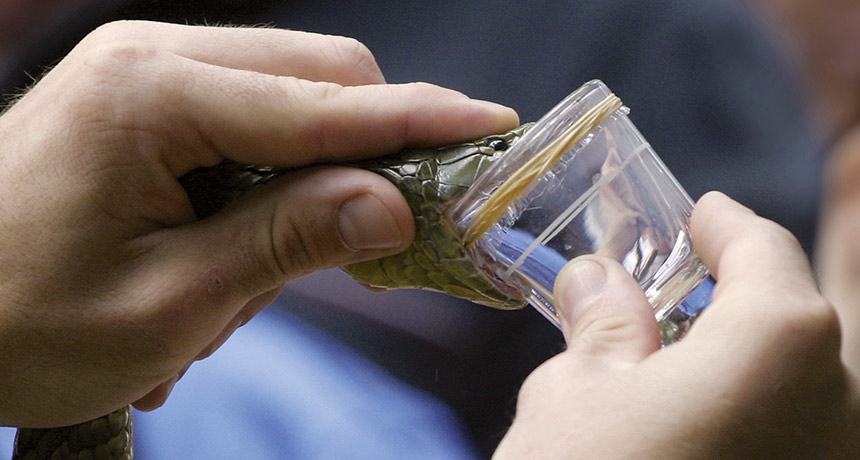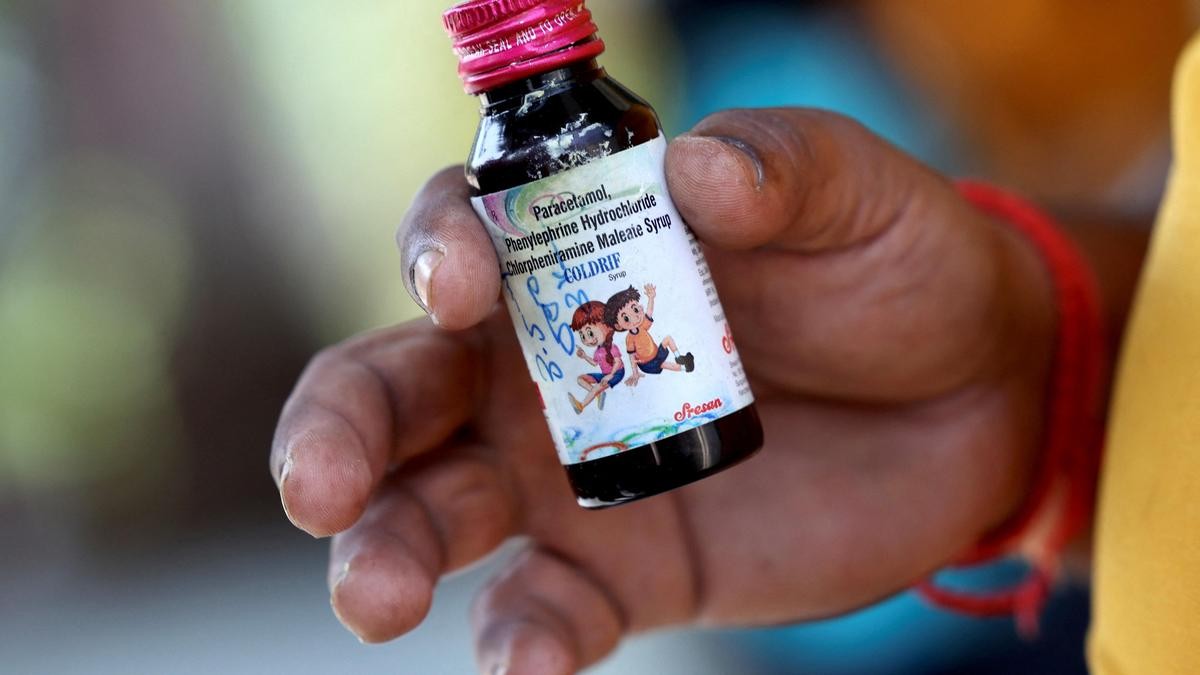





Copyright infringement not intended
Picture Courtesy: www.sciencenews.org
Context: A well-known person was arrested by the police for selling snake venom at parties in the National Capital Region. The police found 20 millilitres of snake venom and several live snakes, including five cobras, a python, two two-headed snakes, and a rat snake with the accused.
Details
Dangers and concerns associated with using snake venom as a recreational drug:
|
Lack of Scientific Understanding |
●There is a significant lack of scientific research regarding the recreational use of snake venom. ●The limited studies available do not provide comprehensive insights into the potential long-term effects, safety, or risks associated with consuming snake venom. |
|
Unpredictable Effects |
●The effects of snake venom consumption can vary widely from person to person. ●While some individuals may report feelings of happiness and euphoria, others may experience adverse effects such as blurred vision, jerky movements, and unresponsiveness. ●These variations in reactions make the use of snake venom highly unpredictable. |
|
Potential for Addiction |
●Individuals who consume snake venom may experience cravings for the substance after the initial high wears off. This suggests that snake venom could have addictive properties, leading to compulsive and harmful behaviours associated with addiction. |
|
Risk of Overdose |
●Determining a safe and appropriate dose of snake venom is challenging, as the potency and quality of snake venom can vary significantly. ●Overdosing on snake venom can have severe and potentially fatal consequences, given the potent nature of the toxins found in snake venom. |
|
Lack of Safe Administration |
●In reported cases in India, snakes were deliberately made to bite consumers, typically on their feet or tongue. This method of administration is highly dangerous. ●Snakebites can lead to venom-induced complications, including severe local reactions, tissue damage, and allergic responses. |
|
Legal Implications |
●The possession and sale of snake venom are illegal in many countries. ●Engaging in such activities contributes to the illicit wildlife trade, endangering snake populations and violating conservation laws. ●Legal consequences, such as fines and imprisonment, may result from involvement in the illegal possession and trade of snake venom. |
|
Ecological Concerns |
●The extraction of snake venom can lead to significant ecological concerns, as it may involve the capture and harm to snake species. ●Many snake species are already threatened by habitat loss and over-exploitation. ●The demand for snake venom can further contribute to the decline in snake populations. |
Conclusion
|
PRACTICE QUESTION Q. How does illegal wildlife trade in India impact wildlife conservation efforts, and what strategies are being employed to address this issue while promoting the conservation of endangered species? |







© 2026 iasgyan. All right reserved